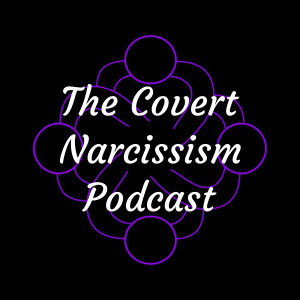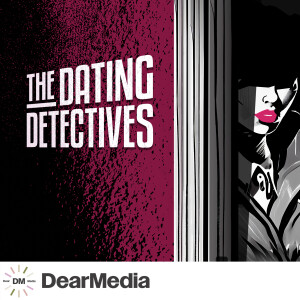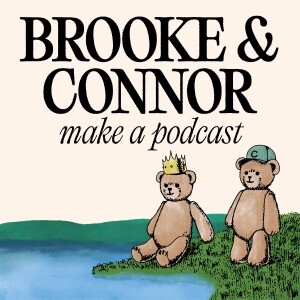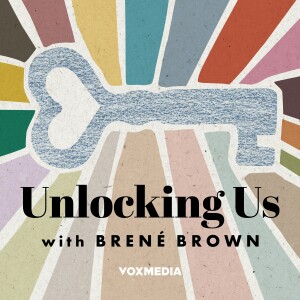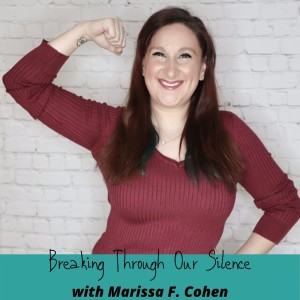

Healing From Emotional Abuse: Movies About Narcissism : With Mike Sellari (Part 1)
Can you heal from abuse? What do I do after leaving my narcissist? What does a healthy relationship look like? These concerns cross the minds of over 20 people every minute; over 28,800 people every day. And the sad fact is, we still don’t talk about it enough. Healing from Emotional Abuse isn’t a bandaid situation. But it doesn’t have to be a five year process either. Millions of other survivors around the worlds entire lives have been impacted by their narcissist. Yours doesn’t have to. To show you how to live a free, confident and peaceful life, your host and Founder of the Healing From Emotional Abuse Philosophy, Marissa F. Cohen.
Marissa: Hey Everyone! Thank you so much for joining us this week on Healing From Emotional Abuse. Today I’m so grateful and excited to introduce my friend Mike Sellari to talk about sexual assault and domestic violence and how it’s portrayed in movies and tv. Mike has an amazing background with film. Right now, he lives in LA as a talent agent, but I do have to say that back in 2006, I starred in his first student film that he wrote, produced and directed, called Man Seeking Woman. So we go back a long. time. He’s an awesome person with a great personality and I’m so excited to have him here. So, let’s get started.
So, lets’s talk about some movies. You’re a huge movie buff, you love talking about movies and I love looking at your posts on Facebook. Every single time you watch a movie, you kind of critique it and every season, I love looking at your lists of best movies of the year. So, I’d love your perspective on movies with domestic violence and sexual assault themes, and what you think about them.
Mike:
Okay, I mean, right at the top, I feel like I’m already going to be treading into dangerous waters with whatever I talk about. Mainly because it’s a complicated issue. There’s a lot of different ways we can discuss this. There’s a lot of different points of view, and I think everyone thinks different.
So, I guess it’s hard to talk about, because you’re saying domestic violence, abuse and stuff like that. And a lot of that also goes back into misogyny and a lot of that goes back into the distribution of power between men and women. Especially from pre-60s, because there was that whole “housewife” ideal of the 50s and stuff. And you can see that with older movies with women, “Being in their place.” And men as the aggressor. Even in the 30s there were still powerful women. You look at stuff like the Philadelphia Story or His Girl Friday, or Lady Eve. You’ll see strong women characters besting the man. But you also see people looking at women in a way that was more, “Of the time.” And I guess right at the top, we really can’t look at things from the past with 2020 eyes. We’re going to look back at a lot of stuff, because probably every single one of these movies has happened in the past. And some just come from different generations. And I’m going to talk about movies that I also love, and will watch still. It’s kind of like you have to just be able to say, look, that was a different time. 50 years down the road, we’re going to look at the stuff we’re doing on a normal basis and our kids are going to be like, “What? What are you doing? How could you just let that happen?” And we’re going to say it was just a different time, and they’re going to tell us that’s a bullshit answer. And we’re going to say, look, I know, we just didn’t realize it.
I mean, if you look 5 years ago, the stuff that we were laughing at in comedies that now we’re looking at and we’re pulling on our collars and going yikes because it’s hard to watch.
Marissa:
Superbad is a great example of that, actually.
Mike:
And honestly, a fantastic movie. And something that we’re going to get into is the idea of what is art, and how far can we push our art? And what’s subversive vs. expletive vs. gratuitous. And then, also, if we’re going to show reality, shouldn’t we have to show the dark sides of reality? Because if we hide it, then what are we saying about our history, and stuff like that? For instance, talking about the civil war and the stuff that did or didn’t happen. Talking about our history and movies about slavery. Haven’t we said all we’ve needed to say, or are we hiding stuff from our past that we don’t want to talk about? But we’ve got to keep it.
Something to just start off the top, and this is definitely an abusive thing. Let’s talk about Michael Jackson for a second. Obviously, we’ve known about his quirks and his weird things, and I truly believe he had a mental illness - and I believe a lot of this stems from mental illness. There’s a whole thing we can talk about with Michael Jackson and his family. And also just what were people doing in just letting their kids be around him? And also stuff we just decided to turn a blind eye to because of certain things. And it keeps going, then Leaving Neverland comes out and that was an intense documentary. And after that came out, James L. Brooks announced that they were puling an episode from the Simpsons from all internet, rerun, syndication, and now it’s on Disney+ but that episode is not on Disney+. And it’s not even that Michael is in it. You’re not seeing his imagery. It has nothing to do with off-color thing. The premise of the episode is Homer goes to a mental institution and meets an inpatient who calls himself Michael Jackson. He’s clearly not Michael Jackson, but he’s voiced by Michael Jackson. It’s weird that we pull that form our history, because we have to look back and see that we see that. However, James L. Brooks says, “This is my stuff. I get to make the decision over what I want out there. And I don’t want it to seem like Michael Jackson is getting more residuals, or his estate getting money from this.” So, when we start taking things out of our history and out of our films, I worry that we have the ability to repeat ourselves in dangerous ways. It’s important to see that stuff. It’s important to acknowledge that we were off base and learned from it. We can watch those movies in a different way. We can see that they were made in those times.
For instance, let’s go into now talking about this. There was a time when rape was a joke. It was kind of funny. It was played off as not a big deal. It was played off in comedies in particular as something that could just happen. Let’s talk about specifics here. There’s a movie if you think back into the early 2000s, there’s a movie I really like that a lot of people don’t called 40 Days and 40 Nights. It starts Josh Hartnett and Shannyn Sossamon, who I just love. And the premise of the movie is, this guy is experiencing a breakup. He’s experiencing this obsession with sex and stuff. So he decides to not masturbate or have sex or do anything sexual for Lent. For 40 Days and 40 Nights. And everyone says he can’t do it. It’s impossible. And he starts losing his mind… it’s a comedy. Meanwhile, his friends are all betting on the day that he’s going to “bust”. And people try to take advantage of that. At the end of the movie, his ex girlfriend bets a lot of money on the final day, and then rapes him while he’s asleep. It’s seen as just a plot point. And then the other girl, the girl who likes him, is like, “I can’t believe you had sex with her.” It’s not, she did it against his will. He was pinned down. He didn’t want it. But that doesn’t matter in the context of that story. But if we look at it there, it’s really weird that she just rapes him and we’re not going to talk about that? And the same thing happens in Get Him to the Greek. Jonah Hill is raped by Carla Gallo. You mentioned Superbad, with the period blood girl. That’s like the reversal of that scene in a way.
So there’s this playfulness. There’s this moment in Revenge of the Nerds where Louis puts on this Darth Vader costume that the jock was wearing. And the hot girl, thinking it’s the jock has sex with him. And he pulls off the mask and she’s like, “You’re that nerd!” But she’s like, that was wonderful. And she forgets it. Like he’s “sexed her” into it’s okay.
If we at that and we look back into the 80s the 70s, moments in the 60s, and even in the 90s and 2000s, and late 2010s. We see these moments. It was before being really aware of what we were doing.
There’s a philosophy I have and that’s: What we put on TV really feeds into society. And then society feeds it back. It’s a cycle. You see movies and I can’t think of any specifics, but the guy pursues the girl. She says no. And the idea is, it’s romantic to keep going and push, push, push. Keep doing that. You see it in tons of high school movies. You see it in movies like American Pie. You see it in to an extent, When Harry Met Sally. That teaches us at a young age that “A No just means you have to keep going, and push past the no. And one day, she’ll give you a shot.” And so that feeds back into it. And that becomes problematic.
However, we’ve also romanticized a certain thing. There’s a term from How I Met Your Mother which I love and use in my own daily life. It’s called Dobbler-Dahmer effect. It means an act could be construed as romantic or psychotic based on how the person feels about the other person. It’s not an easy explainable situation that we’re talking about here. And because of that, we get these movies that show us grey areas. I mean, 16 Candles, there’s definitely that weird moment where the guy is like, “Here, just have my girlfriend.” That’s another thing of older movies, is women being treated as objects. And stuff like that.
Obviously, throughout all the history of cinema, and television, we’ve seen people who combat that. We’ve seen Lucille Ball fight back, and Mary Tyler Moore be these stronger women on TV. You see and take over what we have. But you also see the Honeymooners where Ralph is always threatening to beat his wife. “One of these days, Alice. One of these days.” And even though she’s the power-play in that relationship, there’s still that. I mean, people grew up with that. But at the same time, comedy is what we’re doing to comment on society in a way. And like it or not, the bad parts are in society.
Let’s talk about stuff kids watch. Animal House, a movie that I love. My dad showed that to me. I love Animal House. And there’s that scene where John Belushi is on the ladder looking at the sorority girls. And they’re just all taking off their tops and having a pillow fight. Everyone remembers that scene. And there’s the moment that, that girl walks into a different room, and he hops with the ladder. Okay, it’s hysterical because it’s Belushi hopping on a ladder to see what this girl is doing. Let alone that he’s peeping on her. Even the idea of a Peeping Tom was charming in a way, in these older days.
In Back To The Future, I mean, they call him a perv, but George McFly is spying on his soon-to-be future wife getting changed with binoculars from a tree. And he falls from the tree and that’s how he supposedly meets his wife.
We see certain things as, “Oh, that rascal,” sort of thing. And Belushi is the most rascally of rascals. We see him do the eyebrow thing. We see his face. He’s got this baby face. We’re inclined to laugh. At the end Animal House, there’s that moment where the girls clothes get ripped off by happenstance, and the chaos of the whole thing, and John Belushi, dressed as a pirate, swings down and picks her up and puts her in a car. And she’s screaming and her legs are kicking, and then the last moment we see, he drives off with her. Then later, it cuts and he has her arm around her. She’s sitting in the car, she’s happy, and later, you realize she becomes Senator and Mrs. Bluto Blutarsky. He stole her and she became his wife and everything worked out.
And we know that’s not real life. That’s not how life works. And we know to an extent that Animal House isn’t real life. We know that Revenge of the Nerds isn’t really how college goes. We look at Porky’s and we say that’s not how real life is. I mean, Porky’s, is a really great example. That’s a movie that’s played for laughs all the way through. Weird. And also, talking about going back to a different time. Here’s the Rotten Tomatoes critic consensus for Porky’s:
“Gleeful in its misogyny and celebratory of bad behavior, Porky's is an intermittently funny farce that will leave audiences feeling in need of a shower.”
And that’s weird. That’s just weird. And I mean, the most famous scene of Porky’s is the shower scene. It’s the scene where a group of girls, completely naked, and to that extent, we look back in the past, it seems very gratuitous and those TNA movies were just meant as softcore porn to show kids. It’s why Porky’s isn’t meant to be taken seriously. Although, it’s problematic. There’re these guys and they’re peeping on girls. What does that teach other guys?
There’s a hole in the shower and they’re looking. The girl gets in the way and they yell to move. And the girls laugh. Like it’s charming that these guys are spying on us. We laugh at that.
There’s also in Scary Movie, people were just beating up women and it’s played for laughs. It’s kind of like when you see a Naked Gun movie and Leslie Neilson punches an old woman or something. Or even in an Austin Powers movie, where he’s very hyper-world sexual. We laugh. is it funny to punch an old woman? You think about it, and it’s weird but the answer is.. in the right context. He knocks the girl to the ground and jumps like a wrestler on his elbow off-screen and you hear a noise. It’s these things that are played for funny. And it actually wouldn’t be funny if it was a guy. The reason it’s funny is because it’s taken to such an extreme. It’s not even that, that’s a plot point of the movie. It’s meant as almost slapstick comedy. It’s mean as a hyper-realized version of Marx Brothers. Or Stooges or something like that.
If you want to move away from the playfulness and talk about it as as serious subject, we can do that. Rape and abuse is used as a weapon. Let’s talk about the ones that use it better. The ones that use it traumatically.
There’s things that are also books that became movies. Let’s talk about The Girl With the Dragon Tattoo. The whole premise of The Girl With The Dragon Tattoo, or I guess I shouldn’t say premise, I should say themes, is about the violation of women and the violence against women. You have this guy investigating this family and the death of this girl, and who killed this person. At the same time, he’s teamed up with this woman whose life has been shaped by abuse. She is a lesbian. She’s being raped by her parole officer who she is forced to give blowjobs to in order to not land in prison, because he controls her and it’s this power dynamic. You watch these scenes and they’re visceral. There’s a scene in his office and you see his hand just around her head. You’re not seeing anything really, it’s very close up, but it’s hard to watch. And you say to yourself, do we need to see that? Can it be implied? And the problem with implying it is, this is what happened in the older movies. You’d see stuff happen off screen. You would hear people say things. And it becomes not that bad if we’re just saying words. When we start seeing stuff, it then become more visceral. And something about a movie, there’s something about art even. It’s supposed to invoke a feeling. And there’s a reason why we still talk about these movies today. It’s not because we think, “Awe, can you believe they did that?” No. There’s something artistic here. There’s something that’s trying to be said.
Also, rape is used to show savagery. There’s that mentality that we put that on the savagery. One of the most universal movies that people have seen that showcased rape in a savage way was Deliverance. Do you know Deliverance?
Marissa:
Again, I know of it, but I haven’t watched it. I’m not as cultured as you are.
Mike:
I wouldn’t call myself cultured. I just call myself someone who watches a lot of movies.
Deliverance is a John Boorman movie that is honestly, it’s good. This is an Oscar-caliber movie. The movie has Ned Beatty, of the Beatty’s, Sean Connery, John Voight. It’s basically these four friends that decide they’re going to go down a river canoeing. They’re going to live in the wilderness, and Sean Connery is this really man’s-man who knows the wilderness. One of the guys is more of a white-collar guy. And there’s these locals that are played up as these rednecks, and they are of their own area. Almost like their own law and stuff. They’re in two different canoes, and they get separated. And one of the canoes crashes and the two guys happen upon these two rednecks who basically beat them, tie them to a tree, force one of the guys to strip naked, squeal like a pig, and then they rape him. They kill these locals and now all the other locals are after them. And it becomes this fight for survival. By the end of the movie, you see what happens, and you’re like, this is this ordeal these people have gone through. And it is an ordeal. It’s crazy. How almost primal it becomes. And I think that’s part of what Deliverance becomes. It’s showing that primal-ness. Some people say, did we need to have that rape scene there? Couldn’t it just be violent? And I don’t know the answer to that honestly.
Marissa:
Thank you so much Mike, I always love talking to you about this stuff because you’re so insightful and so well versed in the world of movies and cinema and all that. So, I just wanted to thank you for being here and talking with us. And we will talk again next week about more of the history of how sexual assault has impacted cinema and movies. And truthfully our culture. I look forward to talking to you again next week, Mike. We’ll see you soon!
Hey! If you enjoyed this podcast, you have to check out www.MarissaFayeCohen.com/Private-Coaching. Marissa would love to develop a made-for-you healing plan to heal from emotional abuse. She does all the work, and you just show up. Stop feeling stuck, alone, and hurt, and live a free, confident, and peaceful life. Don’t forget to subscribe to the Healing From Emotional Abuse podcast, and follow us on Facebook at www.facebook.com/marissafcohen, and instagram @Marissa.Faye.Cohen. We’d love to see you there!
More Episodes
All Episodes>>You may also like
Create Your Podcast In Minutes
- Full-featured podcast site
- Unlimited storage and bandwidth
- Comprehensive podcast stats
- Distribute to Apple Podcasts, Spotify, and more
- Make money with your podcast

